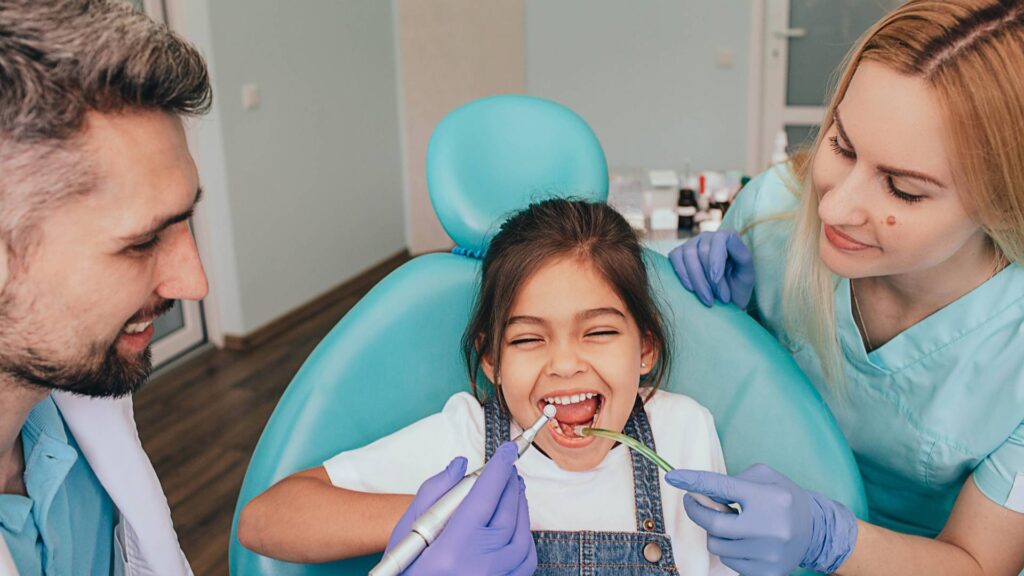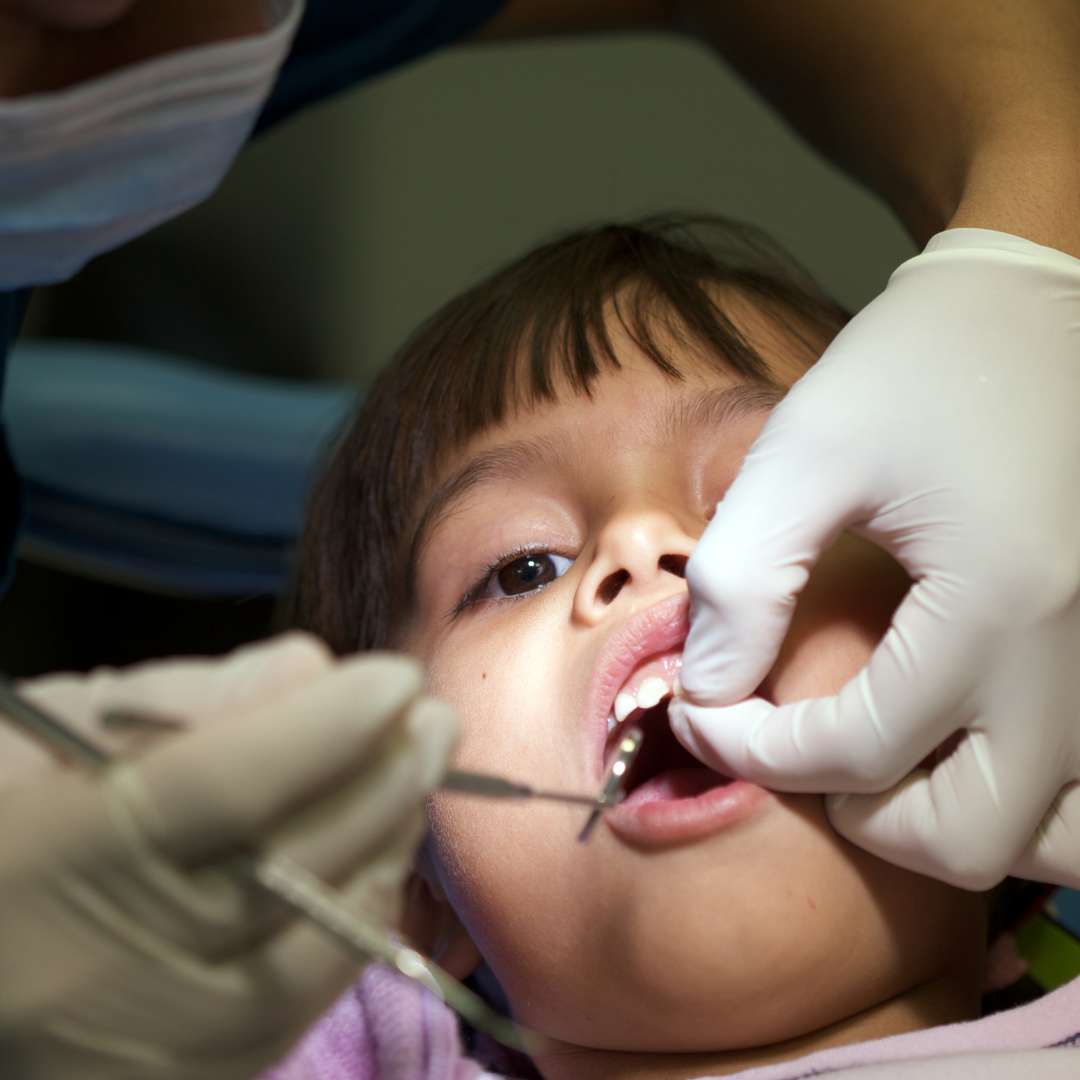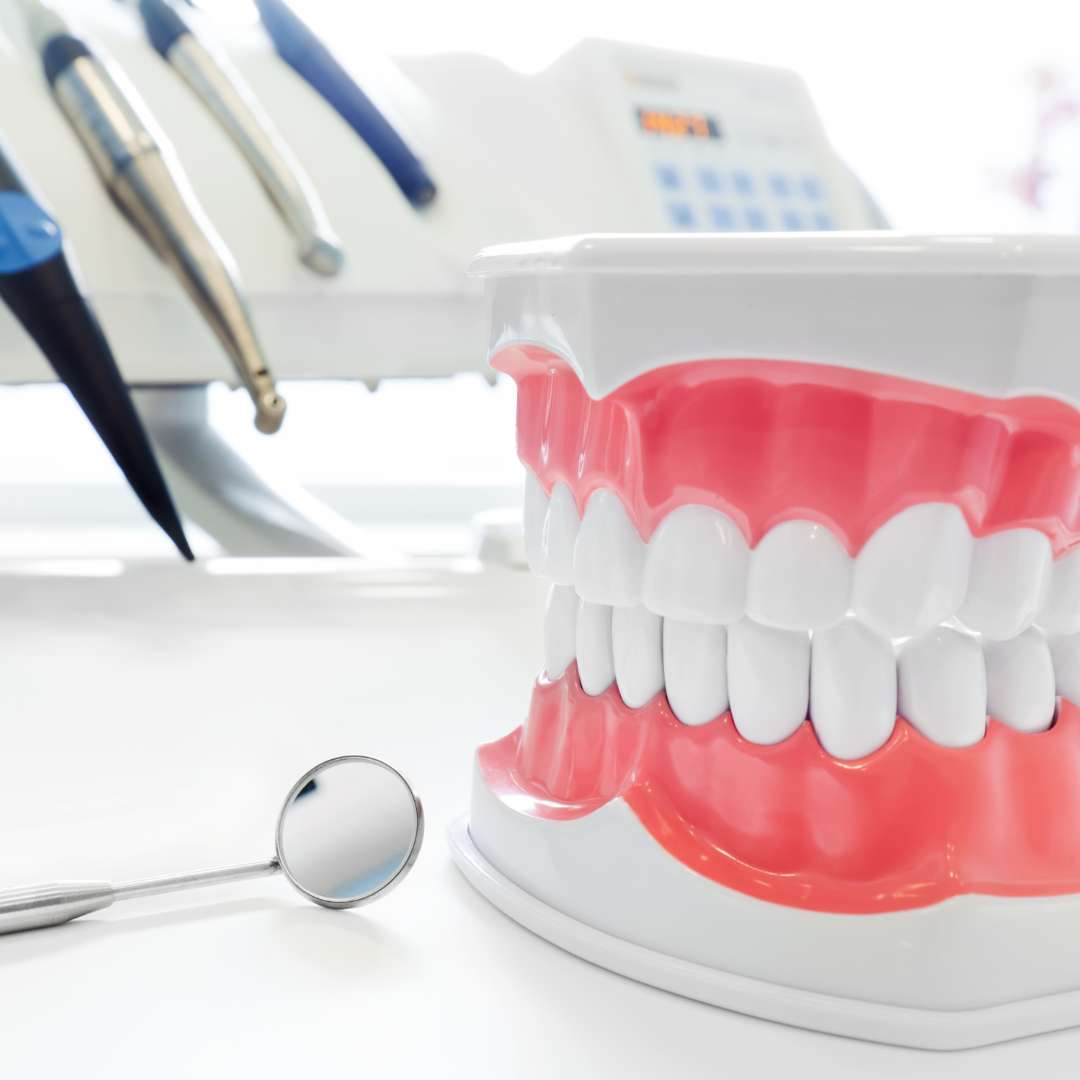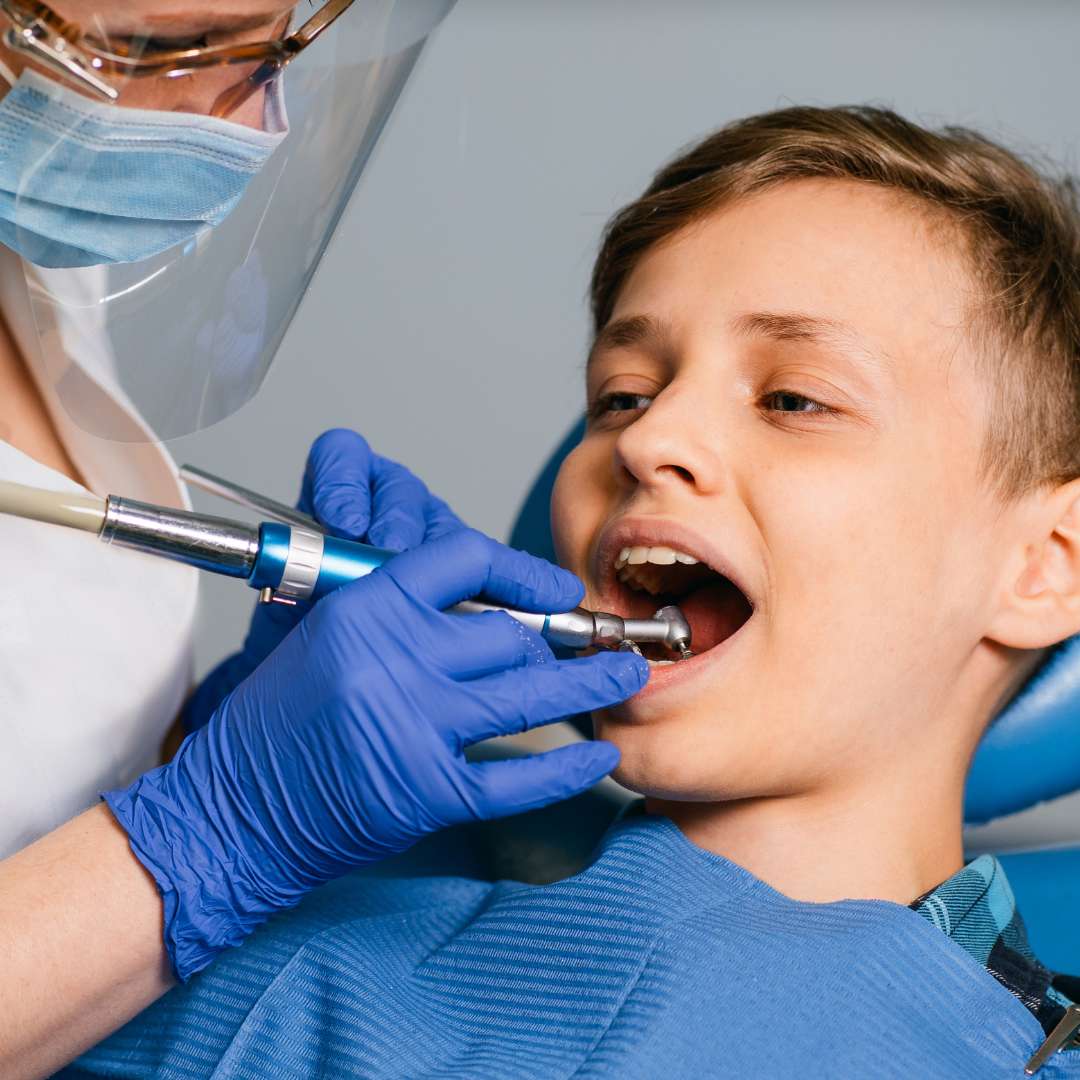
Service available at:
Find our clinic with ease using the directions provided on this page. Whether you’re coming by car, public transportation, or on foot, we’ve got you covered. Check out our hours to make sure we’re open when you plan to visit.
- Beliaghata UnitBeliaghata Unit
- Howrah Maidan UnitHowrah Maidan Unit
Child Care Dentistry in Kolkata
Child Care dentistry is a branch of dental care that focuses on the oral health of children. It involves the prevention, diagnosis, and treatment of dental issues in children from infancy to adolescence. Child Care dentistry includes a range of services such as regular check-ups, cleanings, fluoride treatments, sealants, and fillings to maintain the health of a child’s teeth and gums. It also involves educating children and their parents about the importance of oral hygiene and how to care for their teeth properly. Children need to establish good oral hygiene habits at an early age to prevent dental problems in the future. Child Care Dentistry can help ensure that children have healthy teeth and gums for a lifetime
Child Care Dentistry Checklist
Children are not exempt from experiencing oral health problems. The 2002 Surgeon General’s report “Oral Health in India” found that tooth decay is the most common chronic childhood ailment, occurring more frequently than asthma and hay fever. The Centers for Disease Control and Prevention also reported in 2005 that tooth decay is the most prevalent chronic disease among children aged 5 to 17. It’s important to not overlook oral health issues in infants as well.
Diet and the Oral Health Implications
The foods that your children consume can have an impact on their teeth. Sugary and starchy foods, such as cookies, candy, milk, and potato chips, can lead to tooth decay. It can also be more challenging to properly clean a child’s teeth, which can result in debris remaining in their mouth and leading to bacteria growth and tooth decay. It’s important to remember that although baby teeth will eventually be replaced with permanent teeth, maintaining the health of baby teeth is essential for a child’s overall health and development.
FAQs About Child Care Dentistry in Kolkata :
The best choice for infants is a toothbrush with soft bristles and a small head. Brushing at least once a day, at bedtime, will remove plaque bacteria that can lead to decay.
Children rough house and play. If your child is school age, they’ll frequently get bumps and bruises, that don’t require seeing a doctor. However, if your child complains of a toothache, you should try to set up an appointment with a paediatric dentist as soon as possible. For pain management until you can see a dentist, give your child acetaminophen. You should also rinse the area with warm salt water.
Do not use fluoridated toothpaste until age 3. Until then, clean your child’s teeth with water and a soft-bristled toothbrush. Parents should supervise brushing after the age of 3. Use only a pea-sized amount of toothpaste and make sure your child does not swallow excess toothpaste.
Baby bottle tooth decay is rapid tooth decay due to prolonged nursing. It happens when a child goes to sleep while breast-feeding and/or bottle-feeding. The flow of saliva is reduced during sleep and the natural self-cleansing action of the mouth is diminished. putting anything other than water in their bedtime bottle. Encourage your child to drink from a cup as they approach their first birthday. The baby should be weaned from the bottle at 12-14 months of age.



Aftercare of Child care treatment:
After receiving dental treatment for children, it’s important for parents and caregivers to take proper care of the child’s teeth and gums to ensure that their oral health remains in good condition.
Here are some tips for after care for child dentistry:
- Encourage good oral hygiene: Teach your child to brush their teeth twice a day and floss once a day, and supervise them until they are able to do it on their own. Use a toothbrush with soft bristles and a non-abrasive toothpaste.
- Limit sugary and acidic foods: Sugary and acidic foods can contribute to tooth decay, so it’s important to limit your child’s intake of candy, soda, and other sugary snacks.
- Make dental visits a regular part of your child’s healthcare: Regular dental check-ups are important to ensure that your child’s teeth and gums are healthy. Make sure to schedule regular appointments with your child’s dentist.
- Help your child avoid habits that can damage their teeth: Habits such as thumb-sucking, nail-biting, and tongue-thrusting can damage your child’s teeth, so it’s important to address these habits early on.
- Use fluoride: Fluoride can help to strengthen tooth enamel and prevent tooth decay, so make sure that your child is getting enough fluoride through toothpaste, mouthwash, or fluoride supplements (if recommended by the dentist)
- Provide proper nutrition: A healthy diet that includes a variety of fruits, vegetables, and dairy products can help to provide the necessary nutrients for healthy teeth and gums.
- Use of pain relievers: If your child experiences any discomfort or pain after receiving dental treatment, you can give them over-the-counter pain relievers such as ibuprofen or acetaminophen as directed by the dentist.
It’s also important to follow any specific instructions or guidelines provided by your child’s dentist. If you notice any signs of problems such as pain, sensitivity, or loose or broken restorations, contact the dentist immediately.

